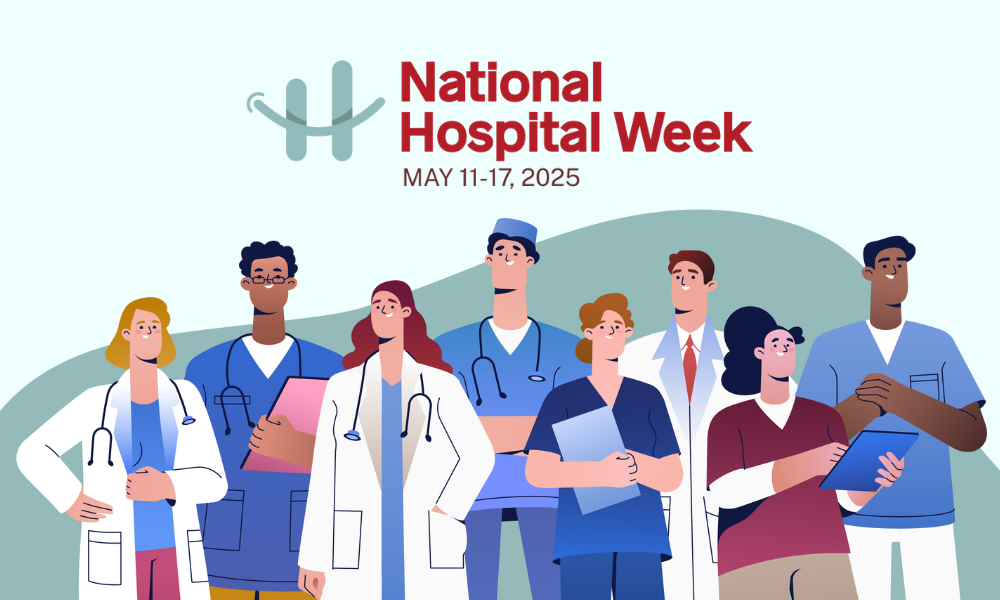Come in; the water’s fine
Welcome to Locums CME 46, Locumpedia’s bi-weekly roundup of news designed to help physicians and APPs maximize the locum lifestyle.
Our lead story: Medicus, one of the industry’s largest staffing firms, suggests exploring short-term assignments if you’re curious about locum tenens but not ready to commit fully. These low-risk, high-reward opportunities let you experience the locum lifestyle firsthand. Gain valuable insights by working in diverse practice settings, engaging with varied patient populations, and adapting to new work environments, all while enjoying competitive pay and the freedom to control your schedule.
Also, in this edition: Discover why APPs embrace locum tenens, how CRNAs thrive amid rising demand, and how the AMA’s STEPS Forward toolkit boosts physician well-being. Plus, tackle the challenges of physician pay in the face of inflation and learn how residents navigate today’s dynamic job market.
Continue your locums education with Locums CME 46 below.
Locum Tenens: A Low-Risk, High-Reward Opportunity to Explore
November 26, 2024 | Medicus Healthcare Solutions
For physicians and APPs who haven’t yet tried working locums, the process may feel outside their comfort zone, but it’s easier and more rewarding than they may anticipate. The benefits of schedule autonomy, competitive compensation, and opportunities in different locations, processes, and populations usually outweigh any challenges of trying something different.
Locum tenens opportunities also provide a “try before you buy” experience, allowing providers to test roles, practices, and locations without long-term commitment. Assignments are short, and providers can decide their next steps after each one. While it’s possible to find locum positions independently, partnering with an agency offers significant advantages, especially for newcomers. Agencies streamline the process by:
- Ensuring a strong match between provider and facility
- Handling essential logistics like credentialing, licensing, and pay negotiation
- Advocating on your behalf if issues arise
- Answering important financial questions, such as whether forming an LLC for tax benefits is worthwhile
Locum assignments are versatile, accommodating local opportunities for those with young families or offering travel opportunities for those seeking broader experiences. The guidance of an agency can also extend to logistical concerns and support, making the transition smoother and more rewarding.
For providers looking to balance professional growth with personal goals, locum tenens can be an excellent way to explore options, gain experience, and achieve a fulfilling work-life balance.
Your Locums Prescription
Why More APPs Are Turning to Locums Work
November 20, 2024 | MPLT Healthcare
Just as many physicians have found opportunities by working locums at all stages of their careers, APPs are finding similar success as more locum tenens opportunities open up for them. The reasons for embracing this work are the same regardless of position:
- Finding work-life balance. Locum tenens assignments are plentiful, and providers can choose what fits their personal commitments and work-environment interests.
- Expanding skills and growing their careers. Each assignment is in a different setting with a different patient population and staff to learn from, which enhances adaptability and resilience.
- Helping more patients access care. Locums are often needed in underserved areas and bring essential care to those who might otherwise face barriers.
CRNAs Thrive Under Increased Demand, Independence, and Flexibility
November 22, 2024 | Caliber Healthcare Solutions
As the healthcare industry evolves, the role of CRNA continues to gain prominence. They are well-positioned in several ways.
- Growing demand: Employment for CRNAs is projected to jump by nearly 40% in the coming decade.
- Competitive compensation: CRNAs are highly educated—the job currently requires a master’s degree and will require a doctorate next year—and their pay reflects that. Their average median salary is $212,650, which works out to about $100 per hour.
- Expanding scope of practice: 25 states allow CRNAs to practice independently, without physician oversight, with more considering this change.
- Flexibility and variety: CRNAs work in diverse settings, locations, and care models. They’re not just needed in the operating room; in most rural facilities, they are the primary anesthesia providers.
- Job security: New medical procedures require more trained providers, as do populations in remote and otherwise underserved areas. CRNAs are needed to meet these needs.
As CRNAs are more widely used across environments, there will be expanded opportunities for locum tenens providers, including those CRNAs who want to try locums in addition to their full-time roles.
Physician Job Satisfaction Soars, Especially Among Late-Career Doctors Seeking Flexibility Through Locums
November 22, 2024 | CHG Healthcare
Physicians are happier than they have been, and older doctors are especially so. An AMA survey found that job satisfaction among physicians has improved, growing from 68% in 2022 to 72% in 2023.
A new CHG survey found that late-career physicians are even happier: 85% expressed satisfaction, with 71% indicating their satisfaction has increased over time. They most enjoy practicing medicine and the social aspects of the workplace—nearly 60% list each of those as top reasons for continuing to work.
As much as they are not looking forward to retiring, they also have new age-related constraints: They want a better work-life balance and do not feel physically able to work long shifts. Many consider locums an option for continuing to work more flexibly. The CHG survey found that 94% have at least a slight interest in working locums, while 54% are extremely interested. By considering locums, older physicians can extend their careers on their own terms.
Physician Wellness Retreat
AMA’s STEPS Forward Toolkit Promotes Physician Well-Being with Collaborative Leadership and Practical Solutions
November 26, 2024 | AMA
Physician input is crucial when it comes to facility programs for staff well-being. It’s worth it for them to understand best practices and approach their administrators. The AMA even offers them an outlet to connect and share ideas on a bigger stage.
The AMA has been focused on reducing physician burnout, and its STEPS Forward toolkit, “Scholars of Wellness,” suggests ways to sustain well-being. The guide emphasizes a dual-goal approach: Recruit and train physician and administrative leaders in well-being and support them in networking across the facility for widespread buy-in and idea solicitation. By pairing physician and administrative leaders, they can evaluate practical projects that dovetail with financial realities and facility priorities.
STEPS Forward toolkits are just a few AMA resources developed from discussions among physicians, leadership, and other healthcare advocates, including the American Conference on Physician Health. Proposals for the 2025 conference are now open through Feb. 14. Physicians, medical students, residents, and fellows are invited to submit abstracts on strategies that prioritize physician well-being and system changes that promote a healthy work environment.
Many Physicians Fail at Mental Health Self-Diagnosis
November 20, 2024 | Medscape
According to the physicians presenting as part of Medscape Masters’ “Break the Burnout Cycle: Next-Gen Solutions for Physicians,” doctors are often the worst at diagnosing their own burnout. Their focus is usually turned outward, so they do not detect the burnout symptoms in themselves early enough.
They may also fear the stigma around mental health and want to keep their concerns private. They compound the situation by self-blaming. However, seeking support is the first step to alleviating burnout and improving quality of life. In this complicated situation—needing support but not necessarily recognizing that—peer support can offer a lifeline.
Doctor’s Notes
Pay Increases—Not Enough, Say Physicians
November 19, 2024 | Becker’s ASC Review
According to a report released in May, 10 specialties saw year-over-year salary increases between 7% and 12%. However, more than one-third of physicians reported dissatisfaction with their compensation, and nearly two-thirds said their pay did not reflect their expertise and effort.
Inflation has been a major factor, rising by nearly 3% since October 2023, which has outpaced salary increases in many specialties, such as cardiology, gastroenterology, and general surgery. These financial pressures are compounded by consistent declines in reimbursement rates. CMS recently finalized a roughly 3% cut to the 2025 physician payment rule, a decision that has drawn criticism from advocacy groups and providers.
Physicians warn that these trends could exacerbate the US physician shortage, with projections indicating a deficit of 6,300 anesthesiologists by 2035. Additionally, ongoing cuts push more physicians toward employed settings, eroding private practice viability and physician autonomy. These pressures have broad implications, potentially reducing recruitment into primary care and other specialties.
Where Can NPs Practice Without Supervision?
November 21, 2024 | Barton Associates
NPs are vital to the continuity of care in most communities, and their role has expanded in states across the country. The physician shortage and an aging population with more consistent and complex needs mean that wait times for doctor appointments are too long, but NPs have stepped in and increased the availability of care.
More than half of all states (27), plus Washington, DC, allow NPs to practice independently, evaluating patients, ordering tests, and prescribing medication without a physician’s sign-off. This also means they can open their own practice. Another 12 states grant NPs reduced practice authority. The remaining 11 states require a physician to supervise all NP work.
Forethought Is Key to Successfully Incorporating APPs
November 20, 2024 | Becker’s Hospital Review
Advanced practice providers, among the country’s fastest-growing occupations, are particularly successful in a few models: primary care, walk-in care, and specialty care. For example, they can screen patients, escalating only cases that must see a physician. They can also focus on pre-and post-surgical care while surgeons remain focused on the operation.
Healthcare organizations can decide how to deploy APPs within the practice scope defined by state regulations. Those aiming to enhance their APP program should assess current access, availability, and patient needs. If expanding APP roles is the chosen path, they might consider the following steps:
- Educate stakeholders on the value of APPs.
- Align APPs with organizational goals and clarify their scope of practice.
- Offer hybrid schedules to accommodate personnel needs.
- Provide onboarding, mentorship, and continuing education.
- Involve APPs in the workplace as one would physicians.
- Develop a pipeline of skilled APPs, starting with partnerships with training programs.
Residents Find Lots of Choice in Job Offers
November 22, 2024 | Medscape
Today’s residents are not worried about finding a job but about choosing the right one. More than half of all residents receive 100 or more job offers, the highest in over 30 years. Three considerations are key to making this decision:
- Location—With so many available opportunities, job seekers may be able to choose if they want to work near family and friends or explore a new location.
- Compensation—It’s not just about the salary; many new physicians are now offered signing bonuses, relocation allowances, and paid CME credits. Some may also consider other paths, such as nonprofit positions, to help them qualify for medical school loan forgiveness through public service.
- Schedule—According to one survey, work-life balance was the most significant factor (36%) as physicians considered their first post-residency positions compared with starting salary (19%).
Completing residents may also consider going out independently or exploring locums in addition to a typical facility offer. A minority of residents choose to open their own practice (6%) or partner with another physician (20%).
Sponsored Content
Dr. Theodora Fynn’s Love for Medicine Reignited by Locum Tenens
November 26, 2024 | Interim Physicians
Exhausted by repeated 18-hour shifts caring for extremely ill patients during COVID-19, Dr. Theodora Flynn, a critical care pulmonologist, decided she had to downshift for her own well-being. She had always wanted to be a doctor—starting when she was a child in Ghana through her medical degree from the University of Ghana and her residency at Howard University in Washington, DC—but suddenly, she was questioning if she could continue in the medical field.
After exploring career options outside medicine, her passion for patient care called her back. This time, a former colleague encouraged her to choose locums. She would have complete control over her schedule and earn more than she had in her permanent position, all while connecting with and caring for the patients she had missed.
After trying a few staffing agencies, Dr. Flynn found her locums home with Interim Physicians. She was impressed by their level of service and support, thoughtfulness, and prompt communication and advocacy, even during challenging situations such as travel mishaps. Now, she works no more than 13 shifts each month, giving her time to attend everything her children are involved in. With one living in the States and one in boarding school in Ghana, the flexibility of locums is key! Dr. Flynn’s story is a clear example of a physician sitting in the driver’s seat of their career, thanks to locums.
5 Reasons to Choose an Oncology-Focused Agency
November 20, 2024 | Cancer CarePoint
Locums oncology providers work in a highly specialized field with complex challenges and wide-ranging opportunities. An oncology-focused agency such as Cancer CarePoint can help you identify the best placements to prioritize your career growth alongside your patients’ unique outcomes.
- As your patients need a specialist, you can benefit from specialized staffing expertise. Your partners there will help you navigate protocols and certifications and support you with everything from technical expertise to emotional resilience.
- Cancer CarePoint maintains close relationships with oncology-focused facilities. This helps you find the best placement.
- Service tailored just to you means no stone is left unturned. Your expert representative can spot coveted oncology roles that general agencies may not know to look for.
- Cancer CarePoint is proactive and strategic. They forecast facility needs to quickly spot staffing gaps to fill and to ensure seamless transitions.
- Working with a specialist means you have someone in your corner for the long run. Oncology-focused recruiters understand the long-term goals possible in your field and help you reach them.
Cancer CarePoint has been placing locums oncology physicians and APPs for 30 years, offering thoughtful solutions for the provider and the patient alike.









